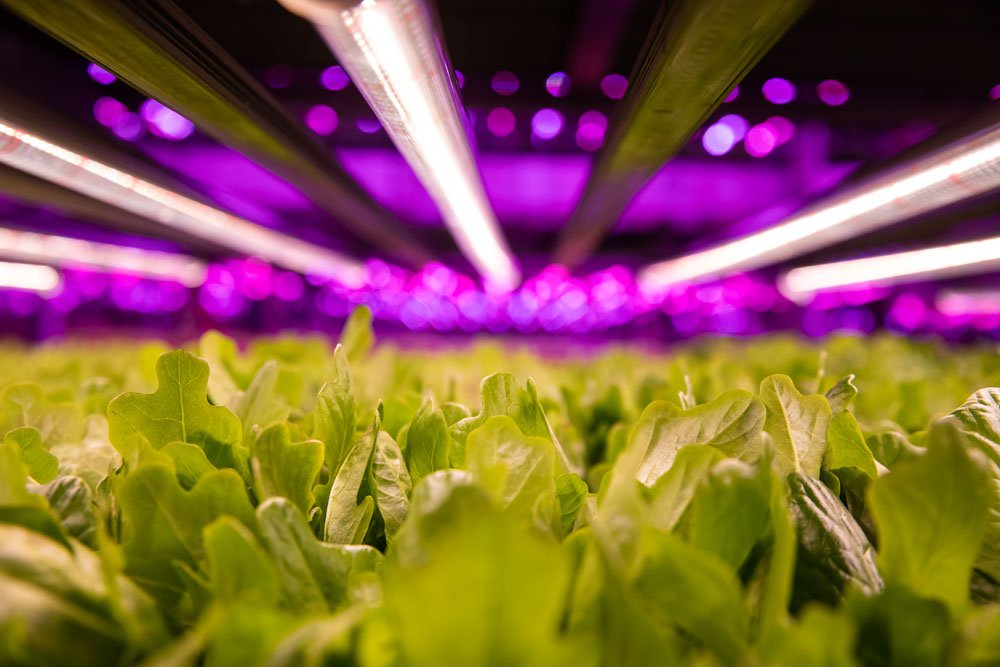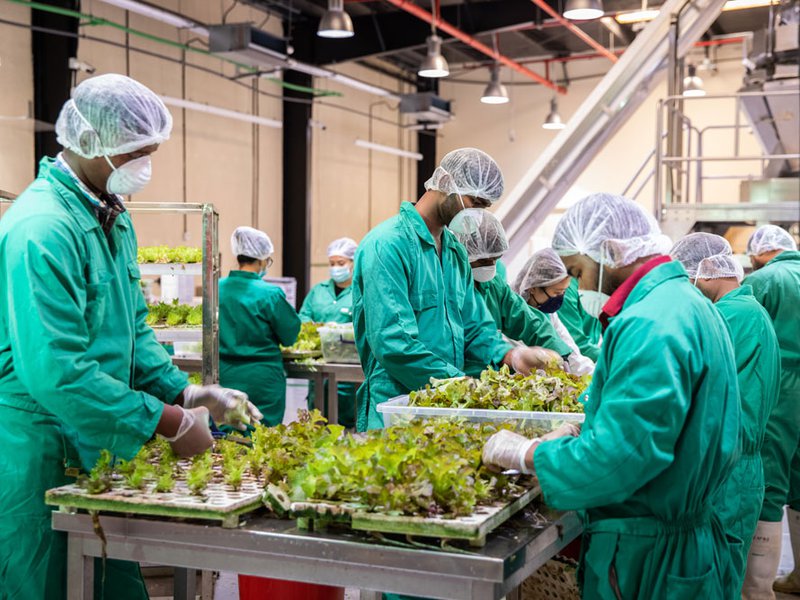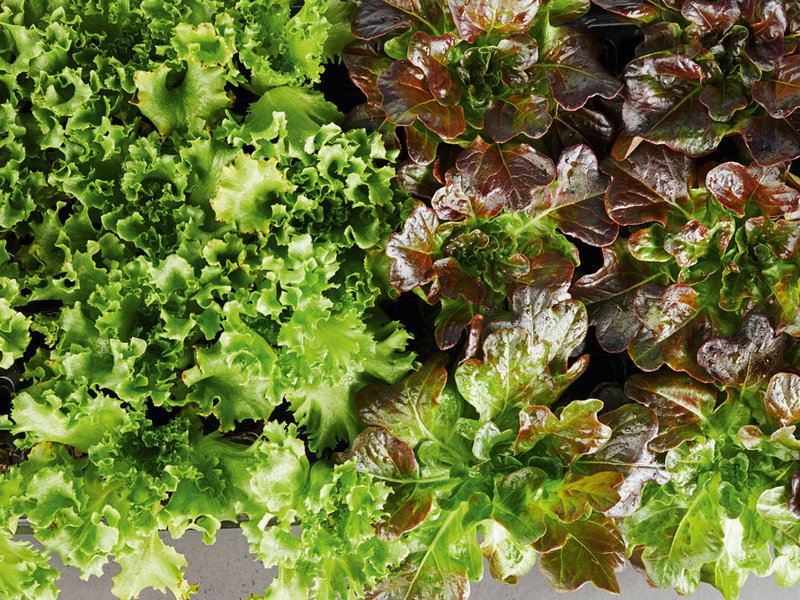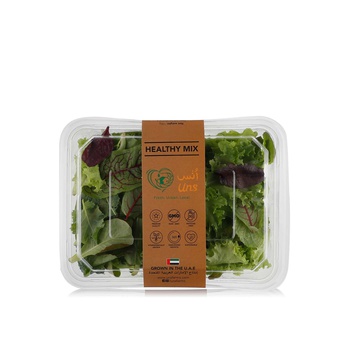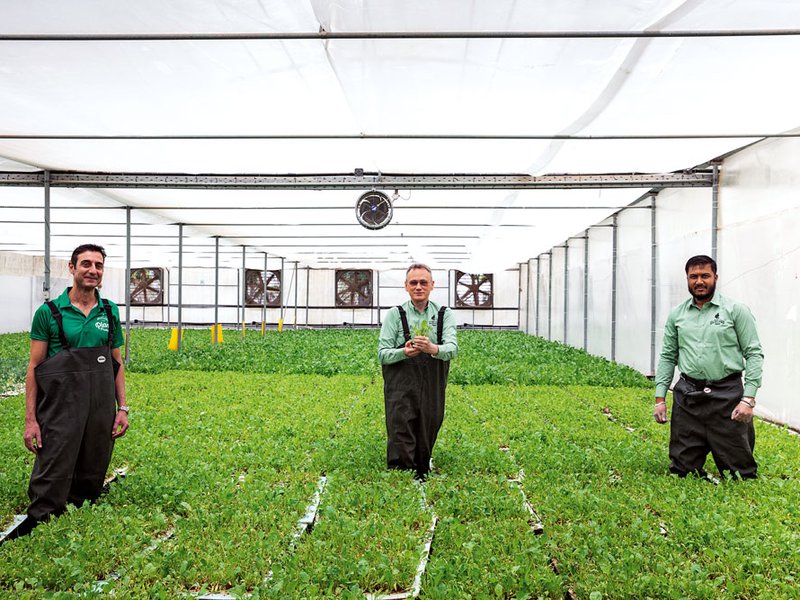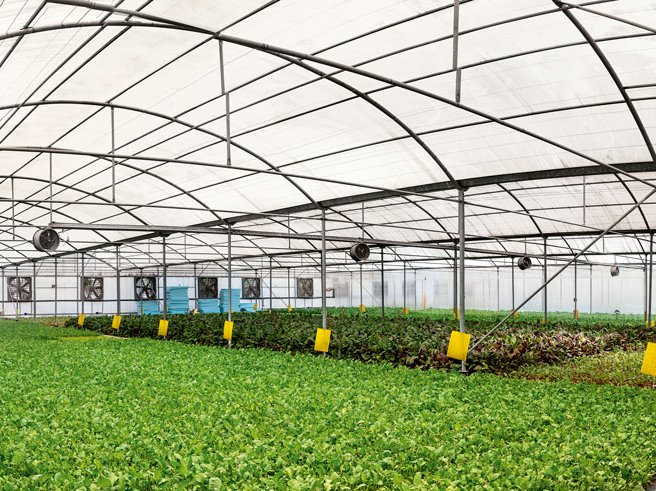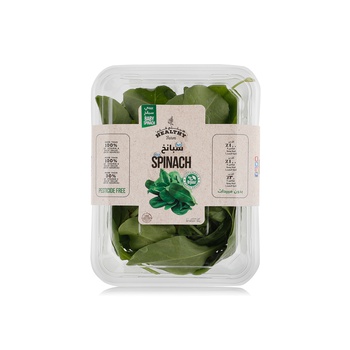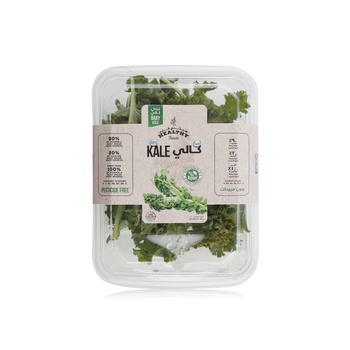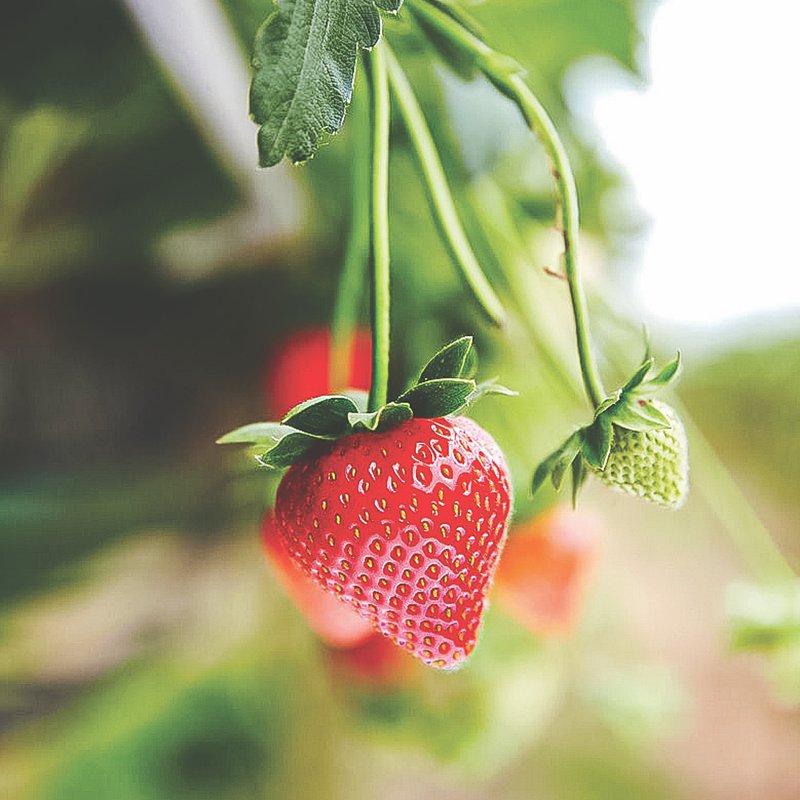UNS FARMS
Located in Al Quoz, Uns Farms is a relatively new, yet influential player in the local farming industry. This vertical hydroponic farm is set inside a high-tech, illuminated warehouse where produce and processes are monitored with passion and precision to ensure top-notch quality salad mixes reach our stores. We chatted with Mustafa Moiz, managing director.
When and why did you start Uns Farms?
Uns Farms was established in 2018 because we wanted to make a difference. The UAE imports the majority of its food and many local farms simply can’t supply enough produce all year round. Being able to use our expertise to grow and provide sustainable produce (that is healthy, safe for consumption and created naturally) for this country has been, and always will be, important to us. We want to give back to the community and have an impact on food security.
Why did you decide to start with salad leaves?
Every culture in the UAE has some sort of salad in its cuisine. We wanted to celebrate this idea and appeal to diverse communities while being able to fill a gap in the market by offering fresh, crispy, locally grown leaves with outstanding ‘wow’ and taste factors.
You’re using hydroponics – please explain this way of farming.
Hydroponics is a method of growing plants without soil; instead, nutrients are provided via a water-based system. It’s considered among the most feasible methods to deal with the growing concern for resource sustainability and food production in the future.
The roots grow either in the air, which is kept very humid; in water, which is well-aerated; or in some solid, non-soil medium, which is kept moist. The water around the roots contains a carefully balanced mixture of nutrients that provides food for the plant.
Which method do you use at Uns Farms?
We use a nutrient-rich water solution along with a climate- and light-controlled environment that ensures our produce gets everything it needs and that we can achieve maximum, high-quality yields. Our methods and technology also allow for year-round growth, regardless of seasons.
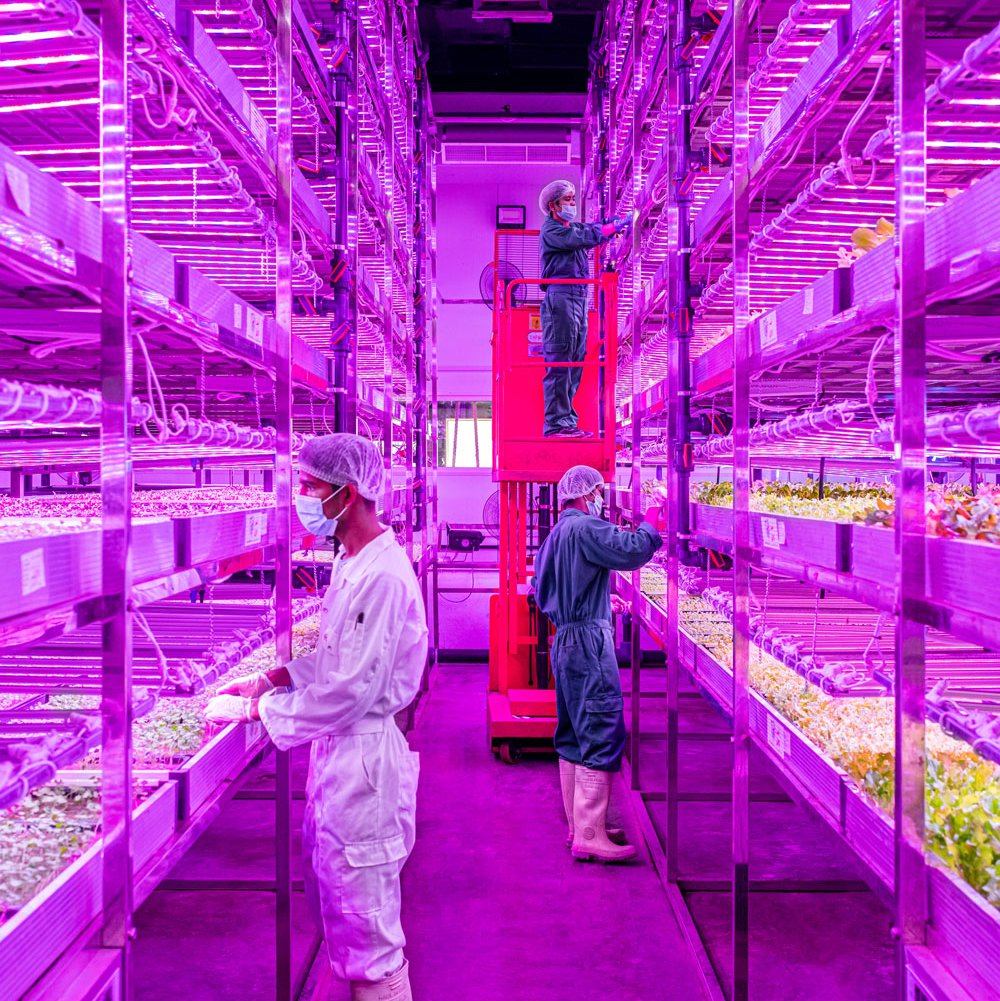
Leaves are grown under LED lights that mimic sunlight for optimum growing conditions and are closely monitored
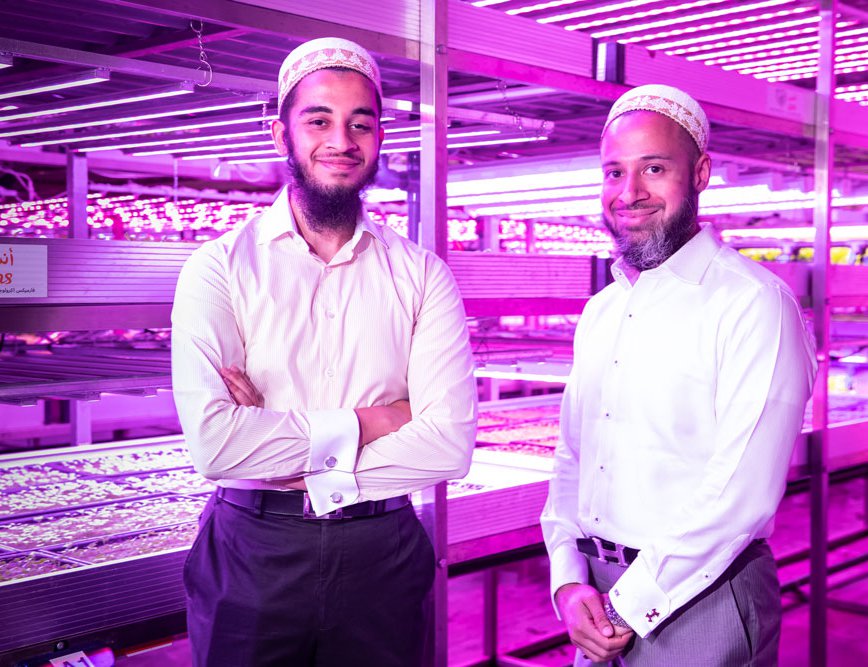
Mustafa Moiz (right), managing director, with Mehlam Murtaza (left)
Talk to us about your multi-coloured lights.
Natural light obviously plays an important role in the growing processes. Essentially, we’re trying to mimic nature as closely as possible through our methods. Our fully-automated LED technology allows us to do just that. We grow our various leaves under different lighting combinations using a variety of coloured bulbs – all of which have similar qualities to sunlight.
What other benefits does vertical hydroponic farming allow?
There are huge water savings – up to 90 per cent, less land is used for crops and because we can control every step of the process and the environment, we don’t need to use any chemicals, pesticides or fertilisers and we have little to no crop loss.
What are some of the challenges you’ve faced with hydroponic farming?
Upfront costs are high and it is not an easy system – one small slip in a certain step can have a cascading effect on the entire process and, of course, damage your output. Perhaps our biggest challenge is cooling and maintaining optimal temperatures indoors – this is tough, given the UAE’s climate.
Why do you believe hydroponic farming is important for the UAE specifically?
Hydroponic farming facilitates self-reliability. Despite the UAE’s arid environment, a wide range of produce with varied requirements can be grown locally and be transported immediately keeping carbon footprint or ‘food miles’ low and freshness intact.
Where do your source your seeds?
We source our seeds from trusted partners. We also control every aspect of the growing process from seed to store, ensuring quality and care at every step.
Tell us about your pre-made mixes.
We have a range of pre-mixed salads such as our Healthy, Spicy, Baby Kale, Gourmet and Signature options. The salad mixes are tailor-made with the help of top-tier chefs to maximise flavour, taste and texture.
Do you plan to expand your product offering in the future?
Yes. We’re looking at introducing more lettuce varieties, herbs and potentially soft fruits and some vegetables. We can grow all sorts in this type of set up. We’re always working on research and development.
For more information, please visit unsfarms.com.
Healthy Farm
Established in 2008 in Al Dhaid, Sharjah, Health Farm integrates innovative horticulture and aquaculture technology to deliver fresh fish, herbs and most importantly, organic leafy vegetables, which have all been naturally farmed. CEO Jacek Plewa and category manager Tasos Petropoulos took us on a tour of their set-up.
You farm using aquaponics – please explain this sustainable process to us.
Essentially, we’re working with three elements: fish, good micro-bacteria and plants. Our process starts with farming Tilapia Nile fish in tanks and feeding them a balanced and nutritious diet to ensure their optimum growth and health. We use state-of-the-art aquaculture methods to continuously remove dissolved and solid waste from the tanks so that only pristine water remains and is re-circulated. The waste from the fish is composted and healthy bacteria break down the solids into a nutrient-rich, natural fertiliser. This is then infused with oxygen and delivered to our plants, which grow on cool, filtered waterbeds in greenhouses. The water on which the plants float is recycled in a closed-loop system with no discharge into the environment. We ultimately end up with produce that is pure and pesticide-free.
So you’re using no other fertiliser other than natural fish waste in your entire process?
Yes. Even the most approved organic pesticides would kill our fish, therefore we would never use them. And because we’re growing produce on water (instead of soil – which needs fertiliser even if one is farming organically), in a controlled system with no interferences from any environmental, exogenous factors, we don’t need to use any chemicals.
Why do you use Tilapia Nile fish? And how long can you use them?
This species is resilient and suits the environment in which they’re farmed. We let them grow for three-to-four months and then we harvest them, and sell them on the open market. This is obviously not our main focus though.
What are some of the other benefits of aquaponics – in terms of the fish themselves?
Aquaponics mimics the natural symbiotic relationship between fish and plants, In addition, as fish are cold-blooded, their natural waste, which is turned into fertiliser, does not run the risk of carrying E. coli or salmonella, like that of warm-blooded animals. Fish are also the fastest converters of plant proteins to animal proteins and they don’t have to be given growth hormones or antibiotics.
And more sustainable benefits?
We’re able to farm using 90 per cent less water than conventional methods and our system allows us to grow six times more per square foot than a traditional farm would do. We are also able to farm year-round.
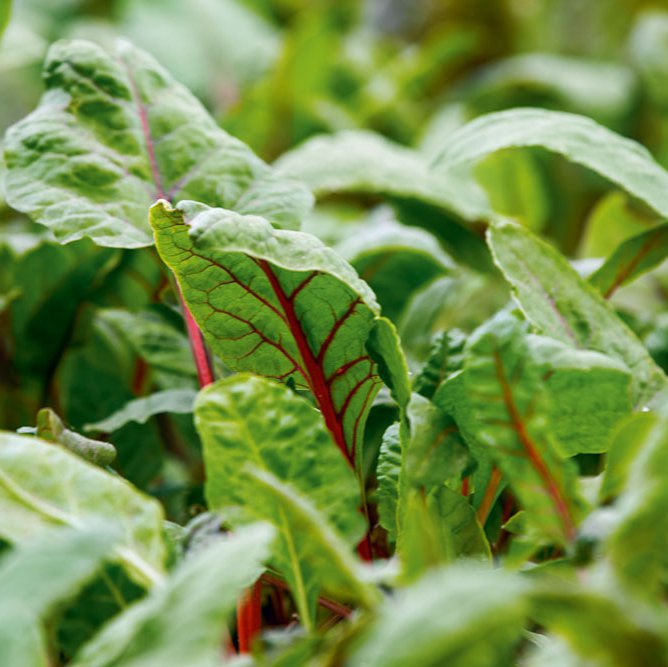
Baby chard
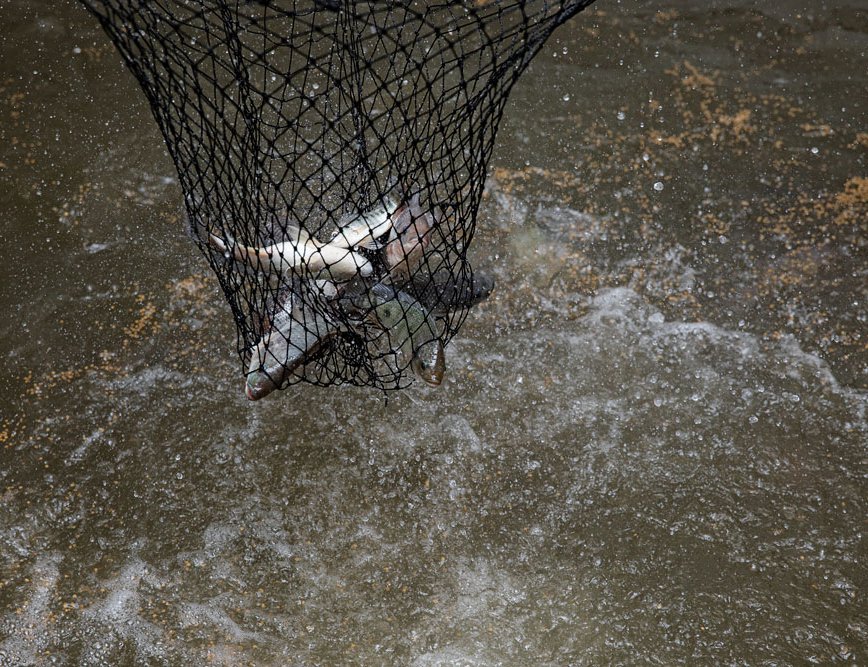
Waste from the Tilapia Nile fish is used to make a natural fertiliser
Talk us through your fresh product offering that’s available at Spinneys.
We have three, superfood mixes: aqua kale, aqua spinach and a mixed salad pack with spinach, kale, arugula and rocket. All are packed with vitamins and nutrients.
Why is aquaponics important for the UAE?
Food security and food independence is becoming increasingly important. Aquaponics offers self-sufficient agriproducts in the UAE ecosystem where the usage of water and arable land is highly limited.
For more information, please follow @healthyfarmme on Instagram and /HealthyFarmME on Facebook.
